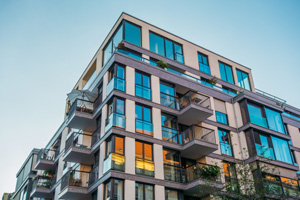4 Steps to Seek Damages for Apartment Injuries
Posted in Apartment Accidents on January 13, 2024
For those living in apartment complexes, the safety of their living spaces and the surrounding premises is paramount. However, landlords and property managers often do not take these concerns as seriously as they should, leading to poor maintenance and hazards for residents. Injuries in an apartment complex can be devastating for victims, leaving many wondering about their path to legal recourse. If you have been injured at an apartment, you can file a claim for damages by drafting a complaint, waiting for it to be served to the appropriate parties, and letting an experienced attorney guide you through California’s complex legal process.
 The skilled attorneys at Soofer Law Group understand how challenging the aftermath of an apartment accident can be, so we can handle every detail of your case as you focus on healing. We offer personalized attention and a proven track record of achieving the best possible outcomes for our clients. Our attorneys only take on a limited number of cases to ensure your needs are being prioritized throughout the legal process. When you partner with us, you can rest assured your case is in the capable hands of an experienced legal professional.
The skilled attorneys at Soofer Law Group understand how challenging the aftermath of an apartment accident can be, so we can handle every detail of your case as you focus on healing. We offer personalized attention and a proven track record of achieving the best possible outcomes for our clients. Our attorneys only take on a limited number of cases to ensure your needs are being prioritized throughout the legal process. When you partner with us, you can rest assured your case is in the capable hands of an experienced legal professional.
How to Sue an Apartment For Damages
Pursuing damages from an apartment complex or landlord requires several steps, including the following:
Drafting a Complaint
The first step you should take is drafting a formal complaint detailing the laws that your landlord or property manager broke, as well as the harm you have suffered as a result. Your attorney can compose this critical legal document and also ensure it is filed correctly and on time.
Notification and Response
After the complaint is filed with the appropriate court, the responsible party must be notified and given an opportunity to respond. Depending on the apartment’s unique circumstances, the defendant in your case may be a landlord, property owner, or management company.
Discovery and Negotiation
During the discovery phase, both legal teams will share information regarding the facts of the case. Once both parties have all of the information, they will negotiate to try and reach a favorable settlement.
Settlement or Trial
If a fair agreement can be reached, the defendant will agree to pay for your damages before the case proceeds to trial. If both parties cannot agree, the case will go to trial, where both sides will present their arguments, and a judge will decide the outcome. While most personal injury cases settle out of court, our attorneys are prepared to take your case to trial to defend your rights and interests.
Grounds for Filing an Apartment Injury Claim
While an apartment complex can be sued for a number of reasons, many fall under the umbrella of landlord and property owner negligence. A few causes of apartment accidents that typically stem from negligence include the following:
- Maintenance issues
- Broken balcony railing
- Apartment fires
- Fall hazards on apartment premises
- Mold or other hazards that make your apartment uninhabitable
- Poorly maintained swimming pools
- Poor lighting
- Inadequate apartment security
Our attorneys will investigate every aspect of your case to determine the cause of your injuries and who may be held responsible for the losses you have endured.
Discuss Your Case With a Talented Apartment Injury Attorney at Soofer Law Group
After suffering an apartment injury, it is essential to remember that the legal process is both intricate and demanding. At Soofer Law Group, our talented legal team is here to provide you with unparalleled, individualized support. We care about ensuring you recover damages for your losses and are proud to offer a no-fee promise so you can pursue justice at no upfront cost to you. Our attorneys are dedicated to fighting for your rights and the maximum compensation available on your behalf.
Schedule a free consultation today by calling (310) 861-4058 or completing our contact form.
